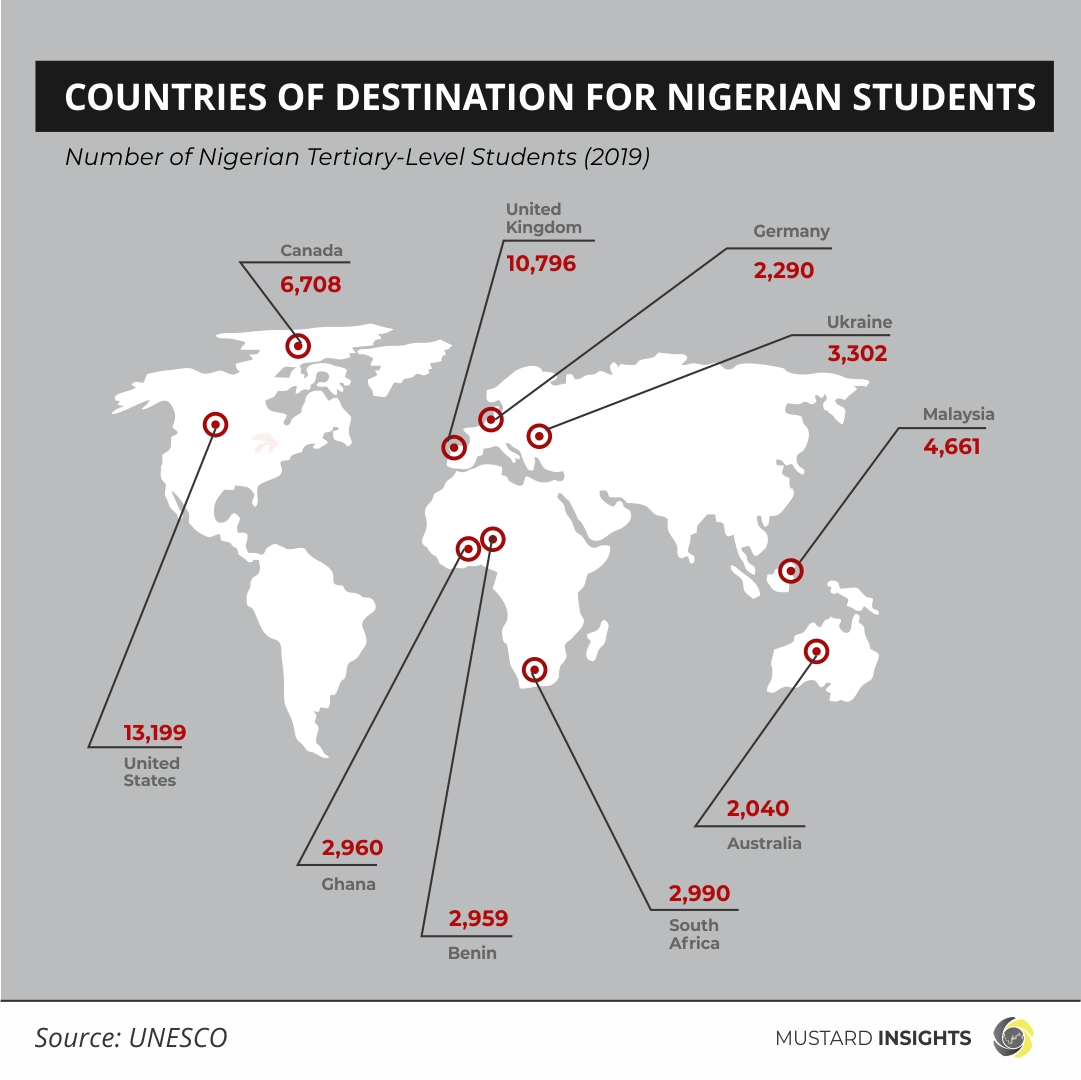Every year, tens of thousands of Nigerians leave the shores of Nigeria for functional educational systems overseas and the allure of a better standard of living and clear career path.
Nigeria is the number one country of origin for international students from Africa. It sends the most students overseas of any country on the African continent, and outbound mobility numbers are growing at a rapid pace.
Breakdown
According to data from the United Nations Educational Scientific and Cultural Organisation’s (UNESCO) Institute of Statistics (UIS), the number of Nigerian students abroad increased by 164 percent in the decade between 2005 and 2015 alone–from 26,997 to 71,351. Currently, this figure has increased to over 100,000 Nigerians studying abroad.
Forecasts predict it may double by 2030 as more countries offer scholarships, incentives and packages similar to Canada’s “Nigerian Student Express”, which was set up in 2020 to improve processing time for study permit applicants in Nigeria.
According to the U.S. Department of Commerce, the United States recorded an economic impact of 463 million USD (192.3 billion NGN) from Nigeria’s international students alone in 2020. This is the equivalent of approximately 4% of Nigeria’s national budget of 4.79 trillion in the same year.
Popular countries of choice for international students globally of which Nigerian students are no exception are the USA, UK, China, Canada, Australia, France, Russia, Germany, Japan and Spain. In recent years, the overall number of Nigerian students enrolling to study in the UK universities has been on a decline; from 18,020 in 2013/14 to 10,540 in 2017/18 (a 41% decrease).
Other countries outside of these that want to carve a consistent share of Nigerian students for themselves include Malaysia, Saudi Arabia, and Ukraine.
Other insight
An assessment by the Central Bank of Nigeria (CBN) on foreign exchange demand for payments shows Nigerians spent over 28 billion USD on foreign education between 2010 and 2020. With the prevailing poor investment in education by the Nigerian government, this figure is likely to increase in subsequent years. While this is in part because of Nigeria under-funding its tertiary institutions, universities abroad, supported by their government, continue to make new policies and offer juicy incentives to international students, especially Nigerians.
Nigeria’s budget for education has averaged around 8.3% of the national budget and fluctuated between 1.86% and about 1.94%, figures which are abysmally low compared to the United Nations Educational Scientific and Cultural Organisation’s (UNESCO) benchmark for funding education of 26% of national budget and 6% of the gross domestic product (GDP) respectively.
Takeaway
As long as the factors that encourage the outflow of students in Nigeria persist, such as the failure of Nigeria’s education system to meet booming demand and often poor quality of Nigerian universities, the numbers will continue to increase.
This means Nigeria will continue to be a target market for foreign universities and their recruitment teams to keep siphoning funds out of Africa into their economy. Besides this, Nigeria will experience increasing brain drain of some of the best students who have adapted and integrated smoothly into their new environments.
Thoughts?
We won't share your email address. All fields are required.

